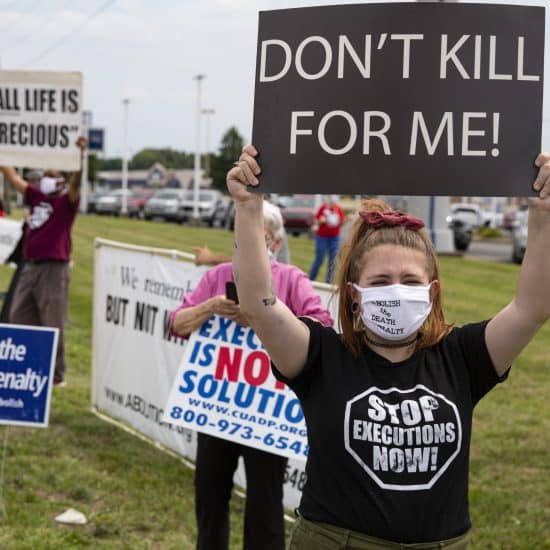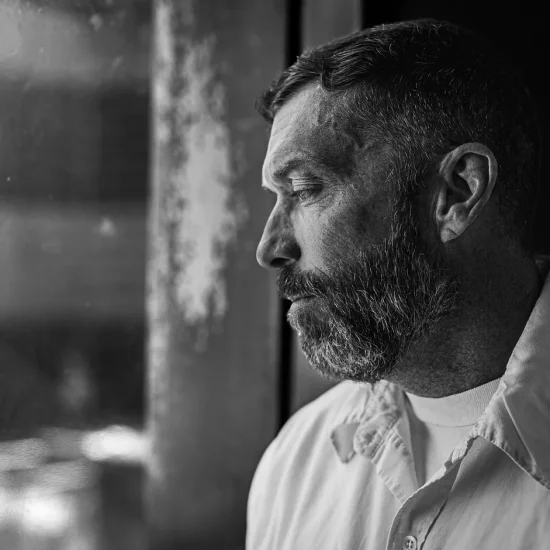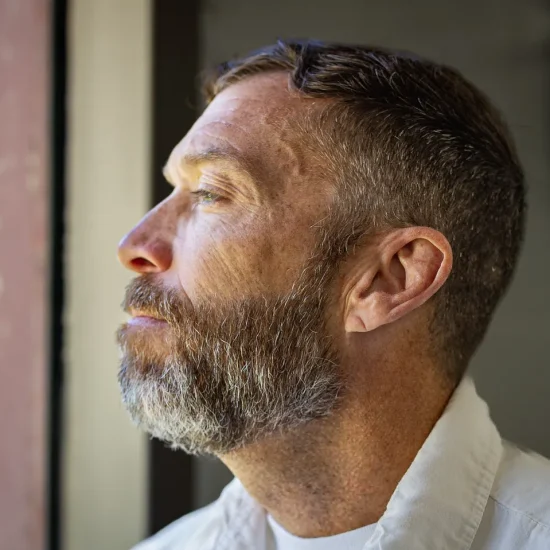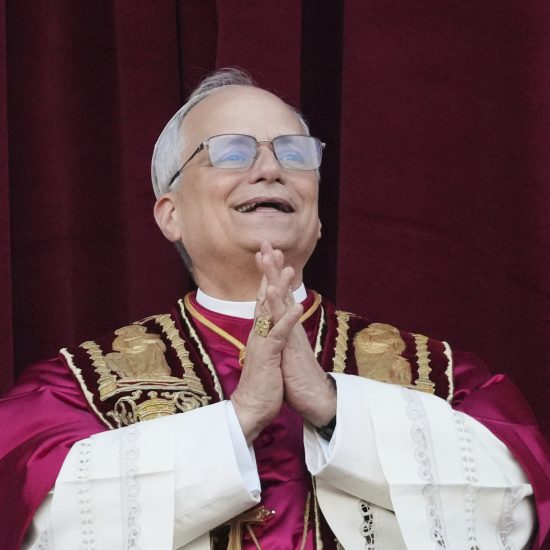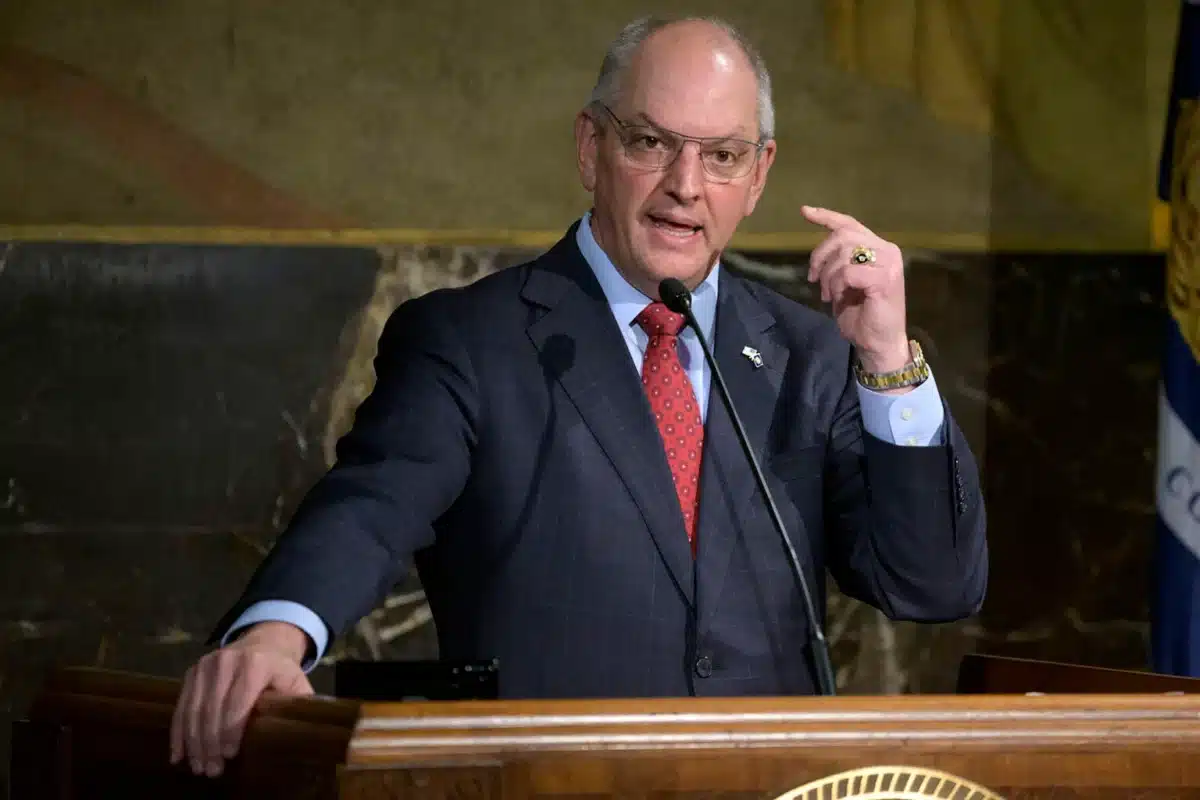
(RNS) — The Vatican has joined U.S. faith leaders and anti-death penalty activists in supporting the Louisiana governor’s desire to clear the death row cells in his state.
Gov. John Bel Edwards, a Catholic Democrat, called in August for the Louisiana Board of Pardons to reconsider applications for clemency of 56 prisoners on the state’s death row. While the state has only executed one person in two decades, Louisiana, along with 26 other states in the U.S., still permits the death penalty.
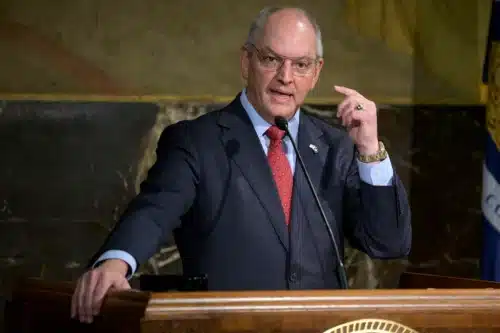
FILE – Louisiana Gov. John Bel Edwards speaks in Baton Rouge, La., Feb. 1, 2022. (AP Photo/Matthew Hinton, File)
Twenty applications have been scheduled for clemency hearings in the next two months by the Louisiana Board of Pardons. Only one person on death row is not among the state’s clemency requests, NPR reported.
“Much like you, the Catholic Church believes that our society can only benefit from the rehabilitation of individuals who have been convicted of crimes,” wrote Archbishop Vincenzo Paglia, president of the Vatican’s Pontifical Academy for Life, in a Tuesday (Sept. 26) letter. “We respectfully urge you to exercise all powers vested in your office to encourage the Board of Pardons to docket the 36 remaining applicants.”
Paglia added: “We think that the clearing of Louisiana’s death row would be a monumental step towards the abolition of the death penalty, that would deserve to be also an example to other states.”
The day before the Vatican letter, a coalition of death penalty opponents, including Faith Leaders of Color Coalition, the American Civil Liberties Union, and Amnesty International USA, made a similar plea to the governor, describing racial inequities in the use of the death penalty in the state.
“In Louisiana, Black people make up only one-third of the State’s population, yet account for over 67 percent of capital cases in the state,” they wrote in a letter to Edwards and the pardon board. “Clemency today remains the most powerful tool available to correct past injustices and ensure no one tomorrow is executed based on a system, built in a bygone era, which we now recognize to be broken, racist, and faulty.”
In his last state of the state address to Louisiana’s Legislature in April, Edwards, whose term ends in January, called for the first time on its members to eliminate the state’s death penalty.
“We all know our criminal justice system is far from perfect — but the death penalty is final,” he said. “We know in 2023 the death penalty isn’t necessary for public safety; and perhaps most importantly, it is wholly inconsistent with Louisiana’s pro-life values as it quite literally by definition promotes a culture of death.”
He expressed support for legislation introduced by Democratic state Rep. Kyle Green that later was defeated.
“We had many people testify in the Louisiana House of Representatives in favor of a change in state law, but that bill never got out of committee,” New Orleans Catholic Archbishop Gregory Aymond told his archdiocesan newspaper in a recent interview. “We will continue to advocate for the end to capital punishment in the state.”
Louisiana Attorney General Jeff Landry, recalling the murder victims of some on death row, filed a Sept. 20 suit against the Board of Pardons for what his office described as a “short-circuiting” of procedures.
“The Board of Pardons should not sacrifice the rule of law, the rights of victims, and the public’s participation simply to achieve the Governor’s political objective,” Landry said in a statement. “The laws on our books must be enforced and proper procedure must be followed.”
But some statewide and national groups, including the Catholic Mobilizing Network, have long advocated for the death penalty’s end.
Krisanne Vaillancourt Murphy, executive director of the Catholic Mobilizing Network, joined the Vatican agency in supporting the governor’s efforts against capital punishment.
“The last lethal injection in Louisiana took place in 2010,” she said. “It is long past time for Louisiana to take capital punishment off its books.”


